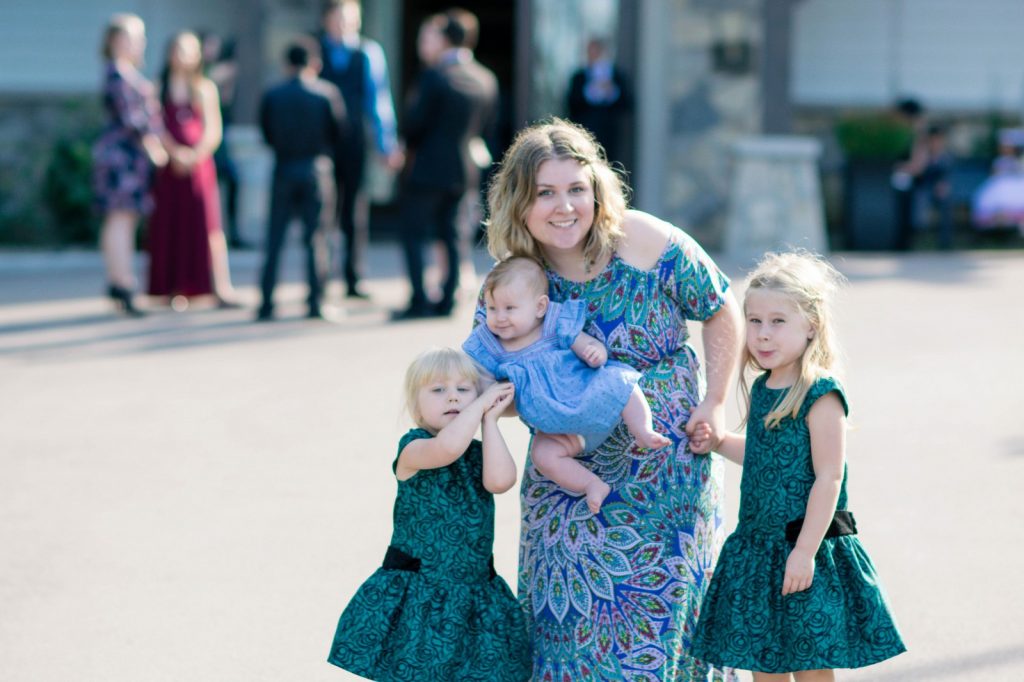Debunking the Myth of the Middle Child

“Why do you want to have four children?” My friend asks me, both of our bellies swollen with our second children.
“Because I don’t want a middle child. I don’t want a kid with middle child syndrome,” I answer, straight-faced and honest.
“I feel the same, I like even numbers,” she says, her voice lowered.
I have always had a biased view of the middle born child. I grew up with a single mother who loved pop psychology and read books by all the great pseudo-scientists. As a young child I knew that I was fiery and passionate because I was a Scorpio, and I was independent and anti-social because I was an only child.
Without having done any of my own reading or research, I had somehow come to the conclusion that middle born children with the oft-neglected and stereotypically rebellious children of the family.
After marrying my husband (who is the oldest of three children), we both discussed the number of children we wanted and decided that four was the magic number. We were young, naive, and unworldly.
Clinging to my childhood pseudoscience, I knew that having four children would be the best way to ensure I didn’t have a child that felt left out or neglected.
Birth order theory has been around for nearly one hundred years. The concept of birth order impacting personality was first discussed in the 1920s, when Austrian psychiatrist Alfred Adler, a middle child, began writing about his conclusions. According to Adlerian theory, the middle child may feel “squeezed out of a position of privilege or significance.”
In 1982 Dr. Kevin Leman wrote a book titled The Birth Order Book: Why You Are The Way You Are. Since then Leman has become the “Doctor of Birth Order”, offering explanations on why our children are the way that they are, based on the order they were born into their family.
Leman’s work has permeated popular culture and pop psychology for the last four decades. Despite the fact that I have never read any of Leman’s work, I know all too well the common characteristics of first born, middle born, and last born children. Its Leman’s work that had influenced me to the point of deciding the number of children that I would have.
After having my second daughter my husband and I discussed not having more children. By then we were experienced and exhausted parents, and we found the idea of having four children almost laughable.
After a few months I couldn’t get it out of my head that I wanted another baby. It felt like a person was missing from our family, but I knew that if I decided to have a third child that there was no way I was having a fourth.
When my third daughter was born our family felt complete. Six months later my husband had a vasectomy, and the decision was official. No more children.
It didn’t take much effort for me to rethink my preconceived ideas about birth order. All I had to do was fall in love with each of my children, individually, to realize how asinine it was to prescribe a preset list of characteristics to each of them.
I chose to scrub my mind of negative and stereotypical language and jargon that related to middle children. Now I find the term “middle child syndrome” offensive, and would never use it to describe my child. It suggests that an individual is inflicted with some kind of disadvantage simply based on when they were born.
Current research is also revealing what utter hogwash birth order theory really is. It turns out that being born first, middle, or last doesn’t really mean much.
A 2015 study of 20,000 individuals from Germany, the United States, and Great Britain, concluded that birth order had no effect on “on extraversion, emotional stability, agreeableness, conscientiousness, or imagination.”
The highly cited study was completed by a group of German researchers at the University of Leipzig and Johannes Gutenberg University of Mainz. The results debunked the myths of birth order, and left people wondering if it was all just self-fulfilling prophecy.
Now, when people make jokes about middle born children to me I let them know that our child does not lack love or attention, and is at the centre of our hearts, like her older and younger sister.
Middle born children, like any child, are special because of who they are, and science is finally proving that the year your child was born will not impact who they become.














